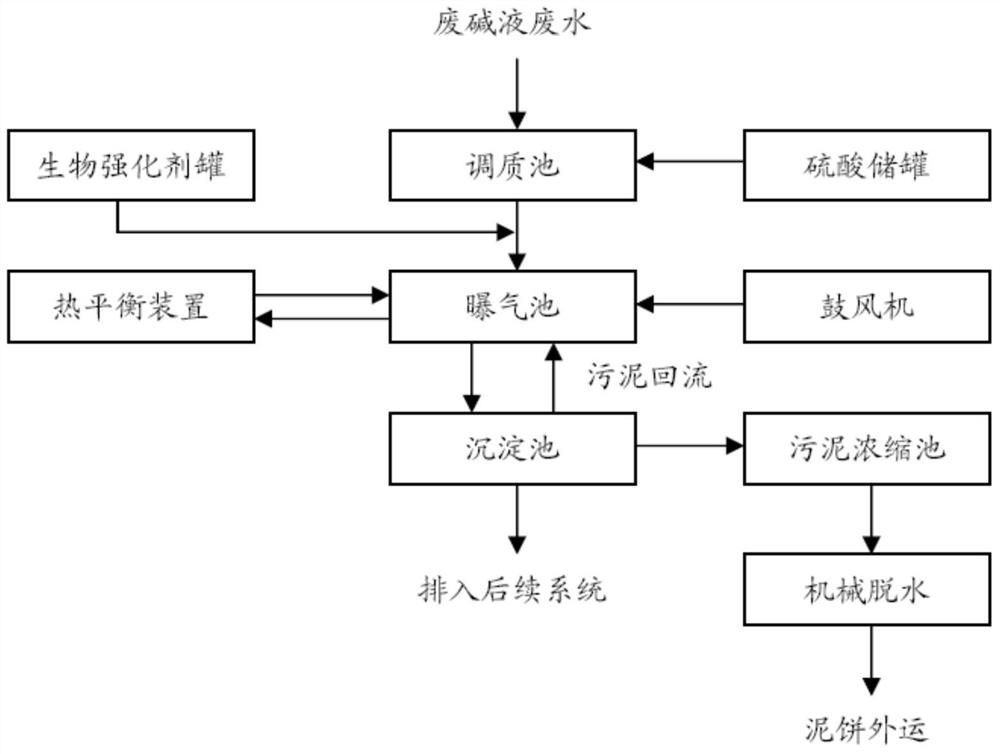Biological treatment process of industrial waste lye and organic wastewater
A technology for organic wastewater and biological treatment, which is applied in the biological treatment process of industrial waste lye and organic wastewater, and in the field of alkaline organic wastewater with high pollutant concentration, which can solve the problems of extremely high boundary conditions, pollutant transfer, and high treatment costs. Achieve good economic benefits, increase water output indicators, and reduce treatment costs
- Summary
- Abstract
- Description
- Claims
- Application Information
AI Technical Summary
Problems solved by technology
Method used
Image
Examples
Embodiment Construction
[0030] The above-mentioned and other technical features and advantages of the present invention will be described in more detail below in conjunction with the embodiments.
[0031] High-concentration waste lye organic wastewater enters the conditioning tank through the lifting pump. At this time, the pH value of the wastewater is between 12 and 14. The process of the present invention requires a pH value between 6.5 and 7.5, which needs to be transferred from the sulfuric acid storage tank to the conditioning tank. Sulfuric acid is pumped into the pool for neutralization. Since a large amount of sodium hydroxide (NaOH) is used in the alkaline washing process, the wastewater is strongly alkaline, and the pH value of the wastewater is generally around 12 to 14. The wastewater must be neutralized before entering the biochemical treatment system. and treatment, select sulfuric acid as the neutralizing agent in the technological process of the present invention, and the sulfuric aci...
PUM
 Login to View More
Login to View More Abstract
Description
Claims
Application Information
 Login to View More
Login to View More - R&D
- Intellectual Property
- Life Sciences
- Materials
- Tech Scout
- Unparalleled Data Quality
- Higher Quality Content
- 60% Fewer Hallucinations
Browse by: Latest US Patents, China's latest patents, Technical Efficacy Thesaurus, Application Domain, Technology Topic, Popular Technical Reports.
© 2025 PatSnap. All rights reserved.Legal|Privacy policy|Modern Slavery Act Transparency Statement|Sitemap|About US| Contact US: help@patsnap.com

